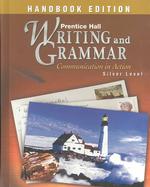- ホーム
- > 洋書
- > 英文書
- > Literary Criticism
Full Description
Literaturewriting, and reading instruction using writing prompts, literary selections, and intriguing discussion points. Students transition from active readers to critical writers through a series of reading prompts and unique writing exercises. This process helps students find meaning in a broader context by forging connections between literature and their personal experiences. Additionally, the book features an eclectic array of classic and contemporary voices in literature as well as sections devoted to newer genres such as graphic novels. This interactive approach leaves students with the knowledge and confidence to write research papers and essays that are thought-provoking, engaging, and authentic to their true writing voice.
Contents
Part I Reading and Writing About Literature1. What Is Literature?Literary Contexts: Authors Define LiteratureHistorical Contexts: Forms of Literature Through TimeSTORIESCharles Perrault, "The Sleeping Beauty in the Wood"Literary Contexts: Defining PlotMargaret Atwood, "There was Once"POEMSPercy Bysshe Shelley, "Ozymandias"Comparing ThemesAdrienne Rich, "Diving into the Wreck"Lawrence Ferlinghetti, "Constantly Risking Absurdity"Reflecting on the Writing ProcessPre-WritingDraftingRevising Assignment: Reading to Write2 Reading and Writing: Contexts for ThinkingActive ReadingWriting About Your Reading ExperienceThinking Critically About the TextSTORY Kate Chopin, "The Story of an Hour"Critical Thinking ActsInterpretationAnalysisArgumentComparison/ContrastLiterary Contexts: Making Meaning of FictionPLAYJane Martin, BeautyLiterary Contexts: Making Meaning of DramaLiterary Contexts: Making Meaning of PoetryPOEMSComparing ThemesSylvia Plath, "Metaphors"Billy Collins, "Introduction to Poetry"Assignments: Reading to WriteSample Student Paper: Ashley Walden, Breaking Boundaries in Chopin's "The Story of an Hour"Part II Writing in Response to Literature 3 Love and Symbolism: Interpreting ThemesPOEMSLi Ho, "A Beautiful Girl Combs Her Hair"Sir Thomas Wyatt, "I find no peace, and all my war is done"Robert Herrick, "Upon Julia's Clothes"Percy Bysshe Shelley, "The Indian Girl's Song"The Act of InterpretationAccounting for Key Symbols and Other ElementsTaking Contexts into AccountWilliam Shakespeare, "Sonnet 18" and "Sonnet 130"Edna St. Vincent Millay, "Love Is Not All"Wislawa Szymborska, "True Love"Sharon Olds, "Sex without Love" Beth Ann Fennelly,"Why I Can't Cook for Your Self-Centered Architect Cousin"STORIESGuy DeMaupaussant, "The Necklace"Bobbie Ann Mason, "Shiloh"Writing an Interpretation: Reading for Meaning in LiteraturePrewriting: Identifying a TopicForming an Interpretation: Offering a Big IdeaBringing in Evidence: Close Reading for Textual SupportShaping a Thesis: Constructing a StatementWriting to Advance the Thesis: The Formal EssayThe IntroductionThe Body The ConclusionIntegrating and Citing Source MaterialRevising, Editing, and ProofreadingRevisingEditingProofreadingSample Student Paper: James Lewis, "Immoderate Desire" in Guy DeMaupaussant's "The Necklace" 4 A Study in Style: Analyzing Patterns What does it mean when you say that a person has style?POEMSWilliamWordsworth, "Nuns Fret Not"Literary Contexts: Stanza Lengths and SonnetsElizabeth Bishop, "One Art"Literary Contexts: The VillanelleThe Act of AnalysisSupporting Theme through AnalysisFinding Patterns through Analysis POEMSe.e. cummings, "1(a" Literary Contexts: Open-Form PoetryComparing ThemesEmily Dickinson, "Some Keep the Sabbath"Gerard Manley Hopkins, "God's Grandeur"Critical Contexts: Formalist CriticismRobert Frost, "Stopping by Woods on a Snowy Evening"Geraldine Brooks, "We Real Cool"Literary Contexts: Scanning Lines of PoetryPLAYTennessee Williams, The Glass Menagerie Literary Contexts: RealismSTORIESToni Cade Bambara, "The Lesson"Literary Contexts: DialogueDon DeLillo, "Videotape"Literary Contexts: RealityTim O'Brien, "The Things they Carried"Literary Contexts: ImageryWriting an Analysis: The Elements of StyleMoving from Free Writes to IdeasFinding a FocusShaping a Thesis Finding Significance in Small Moments and Specific DetailsWriting to Advance the ThesisMaking a PlanDeveloping and Supporting Your ThesisRevising to PolishEditingA Lesson in StyleStyle ChecklistExercisesProofreadingSample Student Paper: Ashley Walden, Analyzing Stage Direction, Dialogue, and Memory in Williams' The Glass Menagerie5 Voice and Narration: Arguing for an Interpretation STORIESJohn Updike, "A&P"Critical Contexts: You DecideWilliam Faulkner, "A Rose for Emily"Critical Contexts: A Historical/Feminist Approach to Miss EmilyThe Act of ArgumentThe Writer: Evaluating Your InterpretationThe Text: Evaluating Your AnalysisThe Readers: Evaluating Your AudiencePOEMSRobert Browning, "My Last Duchess"Historical Contexts: The Duke's Two WivesComparing ThemesChristina Rossetti, "In an Artist's Studio"Marge Piercy, "Barbie Doll"Historical Contexts: Comparing the ThemesThomas Hardy, "Channel Firing"Randall Jarrell, "Death of a Ball Turret Gunner"Historical and Literary Contexts: The Literature of WarT. S. Eliot, "The Love Song of J. A. Prufrock"Literary Contexts: Making Meaning of PrufrockArguing an InterpretationUsing Visual Techniques to Discover IdeasClusteringJot ListingShaping a Persuasive ThesisExercisesWriting to Advance the ThesisSupport Your Interpretation through AnalysisSupport Your Argument by Addressing Counter-ArgumentsRevising with Your Audience in MindWrite the Introduction and ConclusionStrengthen Weaker ParagraphsArrange Your ParagraphsDecide Where to Handle Other InterpretationsEditing and Proofreading Your ArgumentSample Student Paper: Erin Christian, Effects of the Social Environment on Emily Grierson in "A Rose for Emily"6 Families and Their Characters: Comparing Works of LiteratureSTORIESFlannery O'Connor, "Everything that Rises Must Converge"Literary Contexts: Regionalism and the GrotesqueComparing Themes: IdentityAlice Walker, "Everyday Use"Amy Tan, "Two Kinds"Critical Contexts: Assimilation versus AcculturationThe Act of ComparisonChoosing Two Texts to CompareCharting Similarities and DifferencesAnalyzing and Interpreting the ComparisonsPOEMSComparing Themes: GrowingRita Dove, "Adolescence I" and "Adolescence III"Comparing Themes: FathersJudith Cofer, "Common Ground"Robert Hayden, "Those Winter Sundays"Lucille Clifton, "forgiving my father"Sylvia Plath, "Daddy"Theodore Roethke, "My Papa's Waltz"Writing a Comparison and Contrast EssayDiscovering Similarities and DifferencesFocusing on What Is RevealedShaping a ThesisA Thesis Focused on SimilaritiesA Thesis Focused on DifferencesWriting to Advance the ThesisRevising for CoherenceEditing and ProofreadingIntegrating Text from a Reading into Your WritingSummary ParaphraseDirect QuotationStudent Sample: Stephanie Roberts, Structure and Style in Lucille Clifton's "forgiving my father" and Plath's "Daddy": Renaming and Reclaiming7 Oppression and Social Change: Using Critical Tools for Analytical Arguments STORIESCharlotte Perkins Gilman, "Yellow Wallpaper"Critical Contexts: Feminist CriticismJamaica Kincaid, "Girl"Ursula LeGuin "The Ones who Walk Away from Omelas"The Act of Seeing Through a Critical PerspectivePOEMSComparing ThemesAnne Bradstreet, "The Author to Her Book"Langston Hughes, "Theme for English B"Wole Soyinka, "Telephone Conversation"Julio Marzan "Ethnic Poetry"PLAYSSusan Glaspell, TriflesWriting an Analytical Argument from a Critical PerspectiveConsidering Different Critical PerspectivesRereading the Work in Light of the PerspectiveShaping a Thesis: Establishing the Critical ContextWriting to Advance the ThesisIntegrating and Citing Source MaterialRevising, Editing, and ProofreadingSample Student Paper: Stephanie Roberts, Policing Domesticity: Cultural Surveillance in Susan Glaspell's TriflesPart III Experiencing Contemporary Literature8 Laughing Out Loud: Getting to Know Comic LiteratureFrom Someone Who Knows: Dave Barry on Being FunnyBryan Curtis, "On Dave Barry: Elegy for the Humorist" A Genre You Know: Stand-Up Comedy A Genre You Might Like to Know: Comic EssaysDavid Sedaris, "The Drama Bug"Sarah Vowell, "Shooting Dad"Knowing Where We Came From: Comedy in the TheatreWant to Know More? The Language of ComedyWriting About Your Experience with Literature9 Viewing Words and Reading Pictures: Getting to Know Graphic NovelsFrom Someone Who Knows: Scott McCloud on Understanding ComicsExcerpt from Scott McCloud, Understanding ComicsWant to Know More? Graphic Novels versus LiteratureA Genre You Know: Comic StripsCharles Schulz, SnoopyAaron McGruder, The BoondocksA Genre You Might Like to Know: The Superhero Graphic NovelExcerpt from Alan Moore and David Lloyd, V for VendettaAnother Kind of Graphic Novel: A MemoirExcerpt from Art Speigelman, Maus: A Survivor's Tale Knowing Where We Come From: The Evolution of ComicsWriting About Your Experience with Literature10 Thrilled and Chilled: Getting to Know Horror in LiteratureFrom Someone Who Knows: Stephen King on Horror Stephen King, "Why We Crave Horror Stories"A Genre You Know: Stephen King storiesA Horror Story You Might Like: A Real-Life Devil Joyce Carol Oates, "Where are you going, where have you been?"Want to Know More? Source Material for Oates' StoryExcerpt from Don Moser, "The Pied Piper of Tuscon"Bob Dylan, "It's All Over Now, Baby Blue"Knowing Where We Come From: Edgar Allan PoeWriting About Your Experience with Literature11 Listening to Music: Experiencing Stories in RhythmFrom Someone Who Knows: Paul Simon on SongwritingRichard Harrington, "Music, Lyrics in Their Best Order" A Genre You Know: SongsThe Zombies, "A Rose for Emily"Fiona Apple, "Sleep to Dream"The Magnetic Fields, " I Don't Want to Get Over You"Arctic Monkeys, "I Bet You Look Good on the Dancefloor"The Decemberists, "The Crane Wife 1 and 2"A Genre You Might Like to Know: Spoken-Word PoetryCristin O'Keefe Aptowicz, "Lit"Vince Cavasin, "I have not gone marking (with apologies to Pablo Neruda)"Debora Marsh, "Unbreakable Glass--a poem for my daughter"Scott Woods, "I, Nightmare"Knowing Where We Come From: Oral LiteratureWriting About Your Experience with LiteratureSongs with Literary References: A Selective List12 Exploring the Alternative: Getting to Know Experimental LiteratureFrom Someone Who Knows: Claes Oldenburg on Experimental ArtAn Experimental Artist You Know: Eve Ensler, dramatistExperimental Artists You Might Like to Know: Lydia Davis and Chris BachelderLydia Davis, "Boring Friends," "A Mown Lawn," "Interesting," and"The Old Dictionary"Chris Bachelder, "Blue Knights Bounced from CVD Tourney," "My Beard Reviewed," and "Notes Toward the Lay Report on the Joy Debt"Knowing Where We Come From: The Experimental Poetry of Gertrude SteinWant to Know More? A Suggested Reading List of Experimental WritersWriting About Your Experience with LiteraturePart IV Research for Writing 13 Developing a Topic and Stating a ThesisChoosing a TextRead. Re-read. Read again.Posing a Research QuestionAnswering Your Question with a Tentative ThesisConducting Preliminary ResearchAssignment: Drafting a ProposalSample Student Writing: A Research Proposal by Erin Christian14 Finding and Evaluating SourcesConsidering Research SourcesBeginning Your Research and Developing Search TermsInterlibrary LoanLocating Background InformationLocating Literary CriticismLocating Historical and Cultural WorksEvaluating SourcesAsk the Expert!Taking Good NotesThe Reading/Research DialecticA Tentative Timeline: 10 Steps to a Successful Research ProjectAssignment: Writing an Annotated BibliographySample Student Writing: An Annotated Bibliography by Erin Christian15 Understanding Critical PerspectivesReading the CriticsA Quick Look Back at Schools of Critical ThoughtA Critical Casebook on Elizabeth Bishop's "One Art"Reading 1: Excerpt from Joanne Fiet Diehl, Women Poets and the American SublimeReading 2: Excerpt from Elizabeth Dodd, The Veiled Mirror and the Woman PoetReading 3: Excerpt from Susan McCabe, ElizabethBishop: Her Poetics of LossReading 4: Excerpt from Anne Colwell, "Geography III: The Art of Losing"A Critical Casebook on Toni Cade Bambara's "The Lesson"Reading 1: Jerome Cartwright, "Bambara's 'The Lesson'"Reading 2: Excerpt from Janet Carey Eldred, "Narratives of Socialization:Literacy in the Short Story"Reading 3: Excerpt from Janet Ruth Heller, "Toni Cade Bambara's Use ofAfrican American Vernacular English in 'The Lesson'"A Critical Casebook on Tennessee Williams's The Glass MenagerieReading 1: Tennessee Williams, "How to Stage The Glass Menagerie"Reading 2: Excerpt from Lewis Nichols, ReviewReading 3: Excerpt from Nancy M. Tischler, Student Companion to Tennessee WilliamsReading 4: Excerpt from C.W.E. Bigsby, "Entering The Glass Menagerie"Reading 5: Excerpt from Judith J. Thompson, TennesseeWilliams' Plays16 Integrating Primary and Secondary Sources Some Organizing PrinciplesDrafting Body ParagraphsVerb Tenses in Writing about LiteratureIntegrating SourcesSummaryParaphraseDirect QuotationQuotations that become part of your sentenceQuoting larger amounts of text (block quotations)Common KnowledgeAvoiding PlagiarismSample Student Writing: Erin Christian, On Loss in Elizabeth Bishop's"One Art"17 Using the MLA Style of DocumentationPreparing to Cite SourcesUsing the Modern Language Association (MLA) StyleCitations in the PaperWorks Cited at the End of the PaperBooks and Material from BooksArticles from Print PeriodicalsElectronic and Online SourcesOther MediaGlossary of Literary TermsStudent Biographies Credits Index








